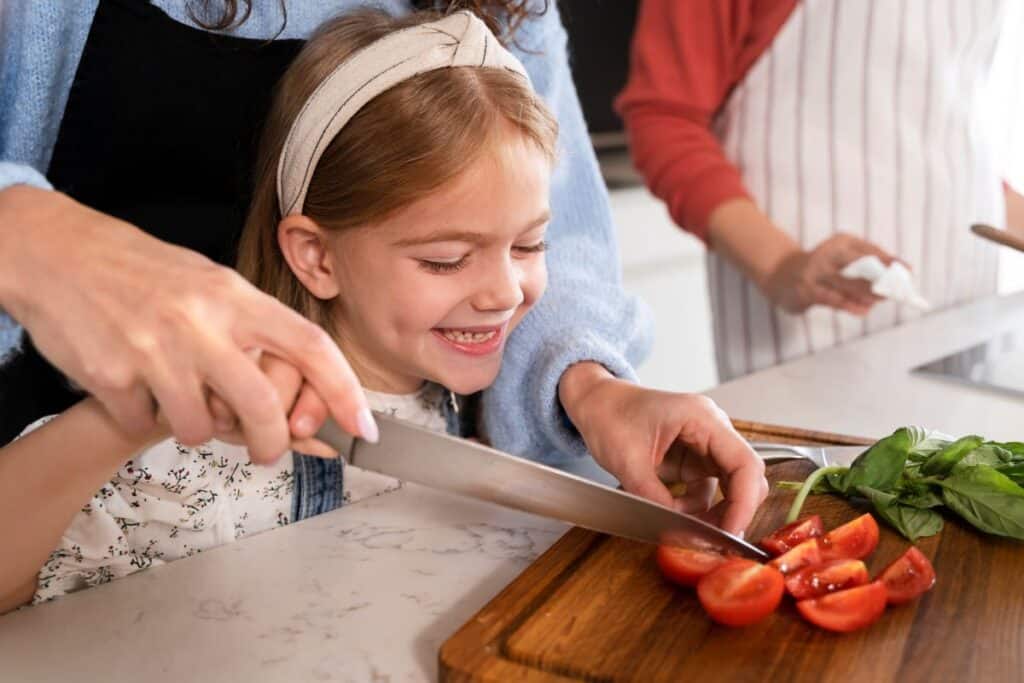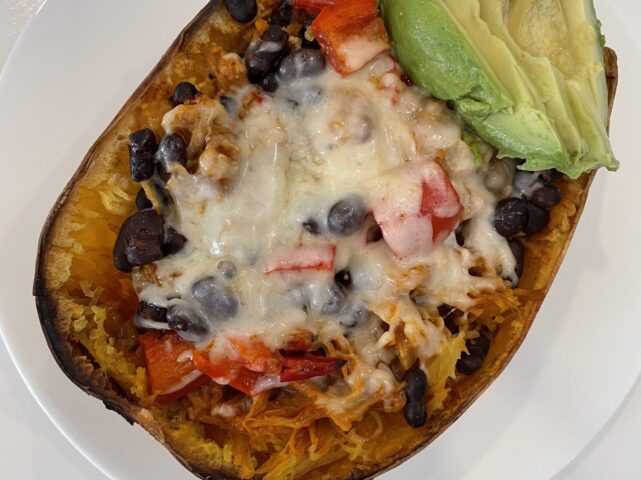Using a Meal Calendar for Your Child: A Strategy for Balanced, Stress-Free Eating

By Paige Mandel, MS, RD, CDN
Do you live your day to day according to your iCal, Google Calendar or Calendar on your kitchen counter? Would you forget what time you scheduled that appointment without it? Or lose track of your kids’ activity schedule? Calendars are such an amazing way to stay organized and stick to a plan, so why not use this when it comes to food too?
Have you ever had your kid have a meltdown at the dinner table that they don’t want what you made? Or spent so much debate time on the “what’s for dinner” conversation with your kiddos? Running out of ideas for what to prepare? Try a meal calendar!
In the midst of the transition weeks between the last licks of summer plans and gearing up for back-to-school, it’s likely that you and your kids have a busy social calendar. Whether that is the last weeks of camp, first week back to school, play dates, back to school well visits, appointments or the start of sports tryouts, this time of year tends to be tied to changing routines and busy schedules. In all periods of transition and lack of routine, and sometimes even in times of normalcy too, mealtime can become extra stressful for both you and your kids.
Whether your child is a selective or adventurous eater, having a sense of routine, responsibility, and accountability could help to make meal times more fun and predictable, lowering stress for the whole family.
Q: What is a Meal Calendar?
A: See image below for a sample using just the dinner meals! A meal calendar can be as simple or as detailed as you’d like, for as many meals and snacks as you’d like, and could be made kid-friendly with images to get your kiddo involved and able to visualize the plan. This is also great way to make your grocery shopping for the week a whole lot easier, and to avoid the daily dinner debate.
Q: How could a Meal Calendar help my child?
A: In many ways, to make mealtime fun!
Implementing a Meal Calendar can help:
- Give your kid a sense of comfort and routine. When you child knows what to expect, there’s no surprises, they know they plan, this can decrease mealtime anxiety, especially for selective eaters who fear being served something new or a meal they don’t like. Having a plan and calendar helps give your child a sense of security and safety to know there will always be something served that they will like. It is important when creating the meal calendar on your own or with an RD that all meals have at least one component that you know your child always likes, this will create less resistance and push back.
- Give YOU some leverage! Kids don’t want what you prepared? Use the meal calendar for leverage, they chose it and saw it on the calendar, something else that they may love more can be “scheduled” for tomorrow, or maybe a meal they love is coming later in the day. This can give room for “we can make sure to put that in the calendar next week/tomorrow!”
- Give your kid(s) a sense of responsibility and accountability. When involving your child in the meal planning process when creating the weekly calendar, this gives your child a sense of responsibility for their selections and feel like they contributed to the meal prep. They can “be the boss” and you can work together to create a plan that is exciting to them.
- Plan trying new foods/recipes. Never feel like it’s the right time to get your child to try new foods? Running into a lot of resistance or out of ideas? Give “Trial Tuesday” or “Wildcard Wednesday” a shot and plan it in, this way your child can mentally prepare and see it coming. Having a reward system in place for trying new foods is always an added bonus tip, to motivate your child and reward positive behaviors of having an open mind and trying new foods. Additional bonus tip- always keep at least one component of a new meal that you know your child likes to give a sense of security to your child and keep anxiety at bay.
- Keep your child nourished with balanced meals and snacks. Seeing a day and week worth of meals can help you visualize your child’s intake more clearly. It’s hard amidst all things going on in a day both inside and outside of mealtime to also think about the balance of nutrients of each meal, especially if you have a selective or hyperactive eater on your hands. With a meal calendar you can help plan for adequate nutrition, aiming to have most meals contain carbohydrates, protein, and fats to keep your child full and fueled throughout their day.
- Relieve YOU of daily food decision fatigue. Sitting down and creating a rotating meal calendar helps you and your kid(s) have a plan, listing out the foods they like and foods you could have available to them all in one place. This helps your grocery haul be more effective and you can be alleviated of the “what do you want for breakfast/lunch/dinner” daily decision.
While it is not a perfect science, having a Meal Calendar can tremendously help you and your kids have a plan, lower the stress of the unknown surrounding mealtime, and decrease in-the-moment food decision fatigue. Just like in our own personal calendars, things change and we reschedule, move things around, the same goes for Meal Calendars. They are not meant to be set in stone, but rather a guiding structural tool to lean on that we try to stick to most of the time, while also allowing room for flexibility and spontaneity.
Click here for our free downloadable Meal Calendar Template







